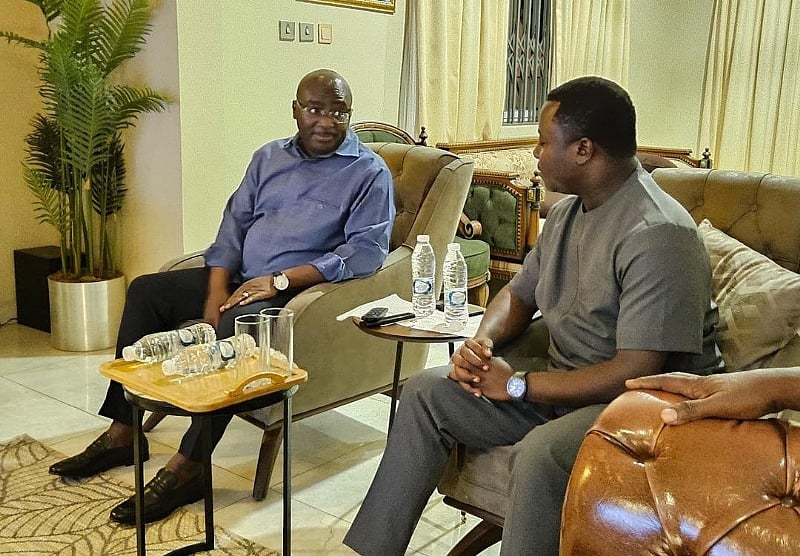The incident involving Rev. John Ntim Fordjour, Member of Parliament for Assin South and Ranking Member on Parliament’s Defence and Interior Committee, highlights the escalating political tensions in Ghana and raises concerns about potential abuse of power by the ruling National Democratic Congress (NDC) government. Fordjour’s residence was besieged by operatives of the National Investigations Bureau (NIB) on Wednesday, April 9th, an action he characterized as a politically motivated attempt to intimidate and silence him. The intervention of members of the minority New Patriotic Party (NPP) prevented the NIB operatives from entering Fordjour’s home, averting a potentially more serious confrontation. This event sparked widespread condemnation and has been framed within the broader context of alleged attempts by the NDC to suppress dissent and stifle the opposition’s oversight functions.
Fordjour’s public expression of gratitude to former Vice President Dr. Mahamudu Bawumia for visiting him following the incident underscores the significance of the event and its potential ramifications within the political landscape. Bawumia’s visit can be interpreted as a gesture of solidarity and a clear message of support for Fordjour, signaling a unified front within the NPP against what they perceive as government overreach. This display of unity within the opposition ranks serves to amplify their message and further politicize the incident, potentially galvanizing public opinion against the NDC. Furthermore, Bawumia’s presence lends weight to Fordjour’s accusations, elevating the incident from a personal attack to a broader challenge to democratic principles.
The timing of the NIB’s actions is particularly noteworthy, occurring amidst increasing scrutiny of the NDC government and growing concerns about its commitment to democratic norms. Fordjour’s position as Ranking Member on the Defence and Interior Committee places him in a key role to scrutinize government actions and hold them accountable. His outspoken criticism of the NDC’s policies may have made him a target for intimidation. The incident has fueled accusations that the NDC is using state institutions, like the NIB, to silence political opponents and suppress legitimate criticism. This perceived abuse of power undermines the principle of checks and balances essential to a functioning democracy.
The attempted siege on Fordjour’s residence has ignited a fierce debate about the role of state security agencies and the boundaries of their authority. Critics argue that the NIB’s actions represent a dangerous precedent, suggesting that the government is willing to utilize its power to intimidate and harass those who challenge its authority. This incident raises concerns about potential chilling effects on freedom of expression and the ability of the opposition to effectively fulfill its oversight responsibilities. If MPs fear reprisal for criticizing the government, it weakens democratic accountability and creates an environment ripe for corruption and abuse of power.
The incident also highlights the increasingly polarized political climate in Ghana. The stark division between the ruling NDC and the opposition NPP has created a tense atmosphere where accusations of political motivation are readily levied. While the full details of the incident are still emerging, the immediate reactions from both sides underscore the deep mistrust and animosity that permeates the political landscape. The strong language used by Fordjour in his public statements, accusing the government of “lawless acts of harassment” and attempting to “gag MPs,” reflects the heightened rhetoric that characterizes the current political discourse.
Moving forward, it is crucial that a thorough and impartial investigation is conducted to determine the facts surrounding the incident at Fordjour’s residence. Establishing the NIB’s motives and the legality of their actions is essential to restoring public trust and ensuring accountability. This incident serves as a stark reminder of the importance of safeguarding democratic institutions and upholding the principles of transparency and due process. The response of the government and the broader political community in the aftermath of this event will be crucial in determining the trajectory of Ghana’s democratic future. A commitment to upholding the rule of law and respecting fundamental freedoms is essential to preventing further erosion of democratic norms and ensuring a just and equitable society for all citizens.














